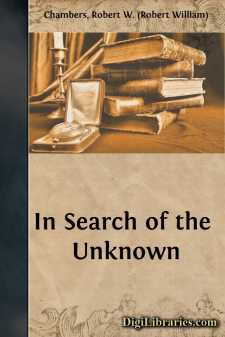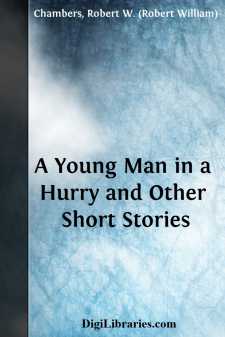Categories
- Antiques & Collectibles 13
- Architecture 36
- Art 48
- Bibles 22
- Biography & Autobiography 813
- Body, Mind & Spirit 142
- Business & Economics 28
- Children's Books 15
- Children's Fiction 12
- Computers 4
- Cooking 94
- Crafts & Hobbies 4
- Drama 346
- Education 46
- Family & Relationships 57
- Fiction 11828
- Games 19
- Gardening 17
- Health & Fitness 34
- History 1377
- House & Home 1
- Humor 147
- Juvenile Fiction 1873
- Juvenile Nonfiction 202
- Language Arts & Disciplines 88
- Law 16
- Literary Collections 686
- Literary Criticism 179
- Mathematics 13
- Medical 41
- Music 40
- Nature 179
- Non-Classifiable 1768
- Performing Arts 7
- Periodicals 1453
- Philosophy 64
- Photography 2
- Poetry 896
- Political Science 203
- Psychology 42
- Reference 154
- Religion 513
- Science 126
- Self-Help 84
- Social Science 81
- Sports & Recreation 34
- Study Aids 3
- Technology & Engineering 59
- Transportation 23
- Travel 463
- True Crime 29
The Maid-At-Arms
Description:
Excerpt
I
THE ROAD TO VARICKS'
We drew bridle at the cross-roads; he stretched his legs in his stirrups, raised his arms, yawned, and dropped his huge hands upon either thigh with a resounding slap.
"Well, good-bye," he said, gravely, but made no movement to leave me.
"Do we part here?" I asked, sorry to quit my chance acquaintance of the Johnstown highway.
He nodded, yawned again, and removed his round cap of silver-fox fur to scratch his curly head.
"We certainly do part at these cross-roads, if you are bound for Varicks'," he said.
I waited a moment, then thanked him for the pleasant entertainment his company had afforded me, and wished him a safe journey.
"A safe journey?" he repeated, carelessly. "Oh yes, of course; safe journeys are rare enough in these parts. I'm obliged to you for the thought. You are very civil, sir. Good-bye."
Yet neither he nor I gathered bridle to wheel our horses, but sat there in mid-road, looking at each other.
"My name is Mount," he said at length; "let me guess yours. No, sir! don't tell me. Give me three sportsman's guesses; my hunting-knife against the wheat straw you are chewing!"
"With pleasure," I said, amused, "but you could scarcely guess it."
"Your name is Varick?"
I shook my head.
"Butler?"
"No. Look sharp to your knife, friend."
"Oh, then I have guessed it," he said, coolly; "your name is Ormond--and I'm glad of it."
"Why are you glad of it?" I asked, curiously, wondering, too, at his knowledge of me, a stranger.
"You will answer that question for yourself when you meet your kin, the Varicks and Butlers," he said; and the reply had an insolent ring that did not please me, yet I was loath to quarrel with this boyish giant whose amiable company I had found agreeable on my long journey through a land so new to me.
"My friend," I said, "you are blunt."
"Only in speech, sir," he replied, lazily swinging one huge leg over the pommel of his saddle. Sitting at ease in the sunshine, he opened his fringed hunting-shirt to the breeze blowing.
"So you go to the Varicks?" he mused aloud, eyes slowly closing in the sunshine like the brilliant eyes of a basking lynx.
"Do you know the lord of the manor?" I asked.
"Who? The patroon?"
"I mean Sir Lupus Varick."
"Yes; I know him--I know Sir Lupus. We call him the patroon, though he's not of the same litter as the Livingstons, the Cosbys, the Phillipses, Van Rensselaers, and those feudal gentlemen who juggle with the high justice, the middle, and the low--and who will juggle no more."
"Am I mistaken," said I, "in taking you for a Boston man?"
"In one sense you are," he said, opening his eyes. "I was born in Vermont."
"Then you are a rebel?"
"Lord!" he said, laughing, "how you twist our English tongue! 'Tis his Majesty across the waters who rebels at our home-made Congress."
"Is it not dangerous to confess such things to a stranger?" I asked, smiling.
His bright eyes reassured me. "Not to all strangers," he drawled, swinging his free foot over his horse's neck and settling his bulk on the saddle. One big hand fell, as by accident, over the pan of his long rifle. Watching, without seeming to, I saw his forefinger touch the priming, stealthily, and find it dry.
"You are no King's man," he said, calmly.
"Oh, do you take me for a rebel, too?" I demanded.
"No, sir; you are neither the one nor the other--like a tadpole with legs, neither frog nor pollywog. But you will be."
"Which?" I asked, laughing.
"My wisdom cannot draw that veil for you, sir," he said. "You may take your chameleon color from your friends the Varicks and remain gray, or from the Butlers and turn red, or from the Schuylers and turn blue and buff."
"You credit me with little strength of character," I said.
"I credit you with some twenty-odd years and no experience."
"With nothing more?"
"Yes, sir; with sincerity and a Spanish rifle--which you may have need of ere this month of May has melted into June."
I glanced at the beautiful Spanish weapon resting across my pommel.
"What do you know of the Varicks?" I asked, smiling.
"More than do you," he said, "for all that they are your kin. Look at me, sir! Like myself, you wear deer-skin from throat to ankle, and your nose is ever sniffing to windward. But this is a strange wind to you. You see, you smell, but your eyes ask, 'What is it?' You are a woodsman, but a stranger among your own kin. You have never seen a living Varick; you have never even seen a partridge."
"Your wisdom is at fault there," I said, maliciously.
"Have you seen a Varick?"
"No; but the partridge--"
"Pooh! a little creature, like a gray meadow-lark remoulded! You call it partridge, I call it quail. But I speak of the crested thunder--drumming cock that struts all ruffed like a Spanish grandee of ancient times. Wait, sir!" and he pointed to a string of birds' footprints in the dust just ahead. "Tell me what manner of creature left its mark there?"
I leaned from my saddle, scanning the sign carefully, but the bird that made it was a strange bird to me. Still bending from my saddle, I heard his mocking laugh, but did not look up.
"You wear a lynx-skin for a saddle-cloth," he said, "yet that lynx never squalled within a thousand miles of these hills."
"Do you mean to say there are no lynxes here?" I asked.
"Plenty, sir, but their ears bear no black-and-white marks. Pardon, I do not mean to vex you; I read as I run, sir; it is my habit."
"So you have traced me on a back trail for a thousand miles--from habit," I said, not exactly pleased.
"A thousand miles--by your leave."
"Or without it."
"Or without it--a thousand miles, sir, on a back trail, through forests that blossom like gigantic gardens in May with flowers sweeter than our white water-lilies abloom on trees that bear glossy leaves the year round; through thickets that spread great, green, many-fingered hands at you, all adrip with golden jasmine; where pine wood is fat as bacon; where the two oaks shed their leaves, yet are ever in foliage; where the thick, blunt snakes lie in the mud and give no warning when they deal death. So far, sir, I trail you, back to the soil where your baby fingers first dug--soil as white as the snow which you are yet to see for the first time in your life of twenty-three years. A land where there are no hills; a land where the vultures sail all day without flapping their tip-curled wings; where slimy dragon things watch from the water's edge; where Greek slaves sweat at indigo-vats that draw vultures like carrion; where black men, toiling, sing all day on the sea-islands, plucking cotton-blossoms; where monstrous horrors, hornless and legless, wallow out to the sedge and graze like cattle--"
"Man! You picture a hell!" I said, angrily, "while I come from paradise!"
"The outer edges of paradise border on hell," he said. "Wait! Sniff that odor floating."
"It is jasmine!" I muttered, and my throat tightened with a homesick spasm.
"It is the last of the arbutus," he said, dropping his voice to a gentle monotone. "This is New York province, county of Tryon, sir, and yonder bird trilling is not that gray minstrel of the Spanish orange-tree, mocking the jays and the crimson fire-birds which sing 'Peet! peet!' among the china-berries. Do you know the wild partridge-pea of the pine barrens, that scatters its seeds with a faint report when the pods are touched? There is in this land a red bud which has burst thundering into crimson bloom, scattering seeds o' death to the eight winds. And every seed breeds a battle, and every root drinks blood!"
He straightened in his stirrups, blue eyes ablaze, face burning under its heavy mask of tan and dust.
"If I know a man when I see him, I know you," he said. "God save our country, friend, upon this sweet May day."
"Amen, sir," I replied, tingling. "And God save the King the whole year round!"
"Yes," he repeated, with a disagreeable laugh, "God save the King; he is past all human aid now, and headed straight to hell. Friend, let us part ere we quarrel. You will be with me or against me this day week. I knew it was a man I addressed, and no tavern-post."
"Yet this brawl with Boston is no affair of mine," I said, troubled. "Who touches the ancient liberties of Englishmen touches my country, that is all I know."
"Which country, sir?"
"Greater Britain."
"And when Greater Britain divides?"
"It must not!"
"It has."
I unbound the scarlet handkerchief which I wore for a cap, and held it between my fingers to dry its sweat in the breeze. Watching it flutter, I said:
"Friend, in my country we never cross the branch till we come to it, nor leave the hammock till the river-sands are beneath our feet. No hunting-shirt is sewed till the bullet has done its errand, nor do men fish for gray mullet with a hook and line. There is always time to pray for wisdom."
"Friend," replied Mount, "I wear red quills on my moccasins, you wear bits of sea-shell. That is all the difference between us. Good-bye. Varick Manor is the first house four miles ahead."
He wheeled his horse, then, as at a second thought, checked him and looked back at me.
"You will see queer folk yonder at the patroon's," he said. "You are accustomed to the manners of your peers; you were bred in that land where hospitality, courtesy, and deference are shown to equals; where dignity and graciousness are expected from the elders; where duty and humility are inbred in the young. So is it with us--except where you are going. The great patroon families, with their vast estates, their patents, their feudal systems, have stood supreme here for years. Theirs is the power of life and death over their retainers; they reign absolute in their manors, they account only to God for their trusts. And they are great folk, sir, even yet--these Livingstons, these Van Rensselaers, these Phillipses, lords of their manors still; Dutch of descent, polished, courtly, proud, bearing the title of patroon as a noble bears his coronet."
He raised his hand, smiling. "It is not so with the Varicks. They are patroons, too, yet kin to the Johnsons, of Johnson Hall and Guy Park, and kin to the Ormond-Butlers. But they are different from either Johnson or Butler--vastly different from the Schuylers or the Livingstons--"
He shrugged his broad shoulders and dropped his hand: "The Varicks are all mad, sir. Good-bye."
He struck his horse with his soft leather heels; the animal bounded out into the western road, and his rider swung around once more towards me with a gesture partly friendly, partly, perhaps, in menace. "Tell Sir Lupus to go to the devil!" he cried, gayly, and cantered away through the golden dust.
I sat my horse to watch him; presently, far away on the hill's crest, the sun caught his rifle and sparkled for a space, then the point of white fire went out, and there was nothing on the hill-top save the dust drifting.
Lonelier than I had yet been since that day, three months gone, when I had set out from our plantation on the shallow Halifax, which the hammock scarcely separates from the ocean, I gathered bridle with listless fingers and spoke to my mare. "Isene, we must be moving eastward--always moving, sweetheart. Come, lass, there's grain somewhere in this Northern land where you have carried me." And to myself, muttering aloud as I rode: "A fine name he has given to my cousins the Varicks, this giant forest-runner, with his boy's face and limbs of iron! And he was none too cordial concerning the Butlers, either--cousins, too, but in what degree they must tell me, for I don't know--"
The road entering the forest, I ceased my prattle by instinct, and again for the thousandth time I sniffed at odors new to me, and scanned leafy depths for those familiar trees which stand warden in our Southern forests. There were pines, but they were not our pines, these feathery, dark-stemmed trees; there were oaks, but neither our golden water oaks nor our great, green-and-silver live-oaks. Little, pale flowers bloomed everywhere, shadows only of our bright blossoms of the South; and the rare birds I saw were gray and small, and chary of song, as though the stillness that slept in this Northern forest was a danger not to be awakened. Loneliness fell on me; my shoulders bent and my head hung heavily. Isene, my mare, paced the soft forest-road without a sound, so quietly that the squatting rabbit leaped from between her forelegs, and the slim, striped, squirrel-like creatures crouched paralyzed as we passed ere they burst into their shrill chatter of fright or anger, I know not which.
Had I a night to spend in this wilderness I should not know where to find a palmetto-fan for a torch, where to seek light-wood for splinter. It was all new to me; signs read riddles; tracks were sealed books; the east winds brought rain, where at home they bring heaven's own balm to us of the Spanish grants on the seaboard; the northwest winds that we dread turn these Northern skies to sapphire, and set bees a-humming on every bud.
There was no salt in the air, no citrus scent in the breeze, no heavy incense of the great magnolia bloom perfuming the wilderness like a cathedral aisle where a young bride passes, clouded in lace.
But in the heat a heavy, sweetish odor hung; balsam it is called, and mingled, too, with a faint scent like our bay, which comes from a woody bush called sweet-fern. That, and the strong smell of the bluish, short-needled pine, was ever clogging my nostrils and confusing me. Once I thought to scent a 'possum, but the musky taint came from a rotting log; and a stale fox might have crossed to windward and I not noticed, so blunted had grown my nose in this unfamiliar Northern world.
Musing, restless, dimly confused, and doubly watchful, I rode through the timber-belt, and out at last into a dusty, sunny road. And straightway I sighted a house.
The house was of stone, and large and square and gray, with only a pillared porch instead of the long double galleries we build; and it had a row of windows in the roof, called dormers, and was surrounded by a stockade of enormous timbers, in the four corners of which were set little forts pierced for rifle fire.
Noble trees stood within the fortified lines; outside, green meadows ringed the place; and the grass was thick and soft, and vivid as a green jewel in color--such grass as we never see save for a spot here and there in swampy places where the sun falls in early spring.
The house was yet a hundred rods away to the eastward. I rode on slowly, noticing the neglected fences on either hand, and thought that my cousin Varick might have found an hour to mend them, for his pride's sake.
Isene, my mare, had already scented the distant stables, and was pricking forward her beautiful ears as I unslung my broad hat of plaited palmetto and placed it on my head, the better to salute my hosts when I should ride to their threshold in the Spanish fashion we followed at home.
So, cantering on, I crossed a log bridge which spanned a ravine, below which I saw a grist-mill; and so came to the stockade. The gate was open and unguarded, and I guided my mare through without a challenge from the small corner forts, and rode straight to the porch, where an ancient negro serving-man stood, dressed in a tawdry livery too large for him. As I drew bridle he gave me a dull, almost sullen glance, and it was not until I spoke sharply to him that he shambled forward and descended the two steps to hold my stirrup.
"Is Sir Lupus at home?" I asked, looking curiously at this mute, dull-eyed black, so different from our grinning lads at home.
"Yaas, suh, he done come home, suh."
"Then announce Mr. George Ormond," I said.
He stared, but did not offer to move.
"Did you hear me?" I asked, astonished.
"Yaas, suh, I done hear yoh, suh."
I looked him over in amazement, then walked past him towards the door.
"Is you gwine look foh Mars' Lupus?" he asked, barring my way with one wrinkled, blue-black hand on the brass door-knob. "Kaze ef you is, you don't had better, suh."
I could only stare.
"Kaze Mars' Lupus done say he gwine kill de fustest man what 'sturb him, suh," continued the black man, in a listless monotone. "An' I spec' he gwine do it."
"Is Sir Lupus abed at this hour?" I asked.
"Yaas, suh."
There was no emotion in the old man's voice. Something made me think that he had given the same message to visitors many times.
I was very angry at the discourtesy, for he must have known when to expect me from my servant, who had accompanied me by water with my boxes from St. Augustine to Philadelphia, where I lingered while he went forward, bearing my letter with him. Yet, angry and disgusted as I was, there was nothing for me to do except to swallow the humiliation, walk in, and twiddle my thumbs until the boorish lord of the manor waked to greet his invited guest.
"I suppose I may enter," I said, sarcastically.
"Yaas, suh; Miss Dorry done say: 'Cato,' she say, 'ef de young gem'man come when Mars' Lupus am drunk, jess take care n' him, Cato; put him mos' anywhere 'cep in mah bed, Cato, an' jess call me ef I ain' busy 'bout mah business--'"
Still rambling on, he opened the door, and I entered a wide hallway, dirty and disordered. As I stood hesitating, a terrific crash sounded from the floor above.
"Spec' Miss Dorry busy," observed the old man, raising his solemn, wrinkled face to listen.
"Uncle," I said, "is it true that you are all mad in this house?"
"We sho' is, suh," he replied, without interest.
"Are you too crazy to care for my horse?"
"Oh no, suh."
"Then go and rub her down, and feed her, and let me sit here in the hallway. I want to think."
Another crash shook the ceiling of solid oak; very far away I heard a young girl's laughter, then a stifled chorus of voices from the floor above.
"Das Miss Dorry an' de chilluns," observed the old man.
"Who are the others?"
"Waal, dey is Miss Celia, an' Mars' Harry, an' Mars' Ruyven, an' Mars' Sam'l, an' de babby, li'l Mars' Benny."
"All mad?"
"Yaas, suh."
"I'll be, too, if I remain here," I said. "Is there an inn near by?"
"De Turkle-dove an' Olives."
"Where?"
"'Bout five mile long de pike, suh."
"Feed my horse," I said, sullenly, and sat down on a settle, rifle cradled between my knees, and in my heart wrath immeasurable against my kin the Varicks.
So this was Northern hospitality! This a Northern gentleman's home, with its cobwebbed ceiling, its little window-panes opaque with stain of rain and dust, its carpetless floors innocent of wax, littered with odds and ends--here a battered riding-cane; there a pair of tarnished spurs; yonder a scarlet hunting-coat a-trail on the banisters, with skirts all mud from feet that mayhap had used it as a mat in rainy weather!
I leaned forward and picked up the riding-crop; its cane end was capped with heavy gold. The spurs I also lifted for inspection; they were beautifully wrought in silver.
Faugh! Here was no poverty, but the shiftlessness of a sot, trampling good things into the mire!
I looked into the fireplace. Ashes of dead embers choked it; the andirons, smoke-smeared and crusted, stood












